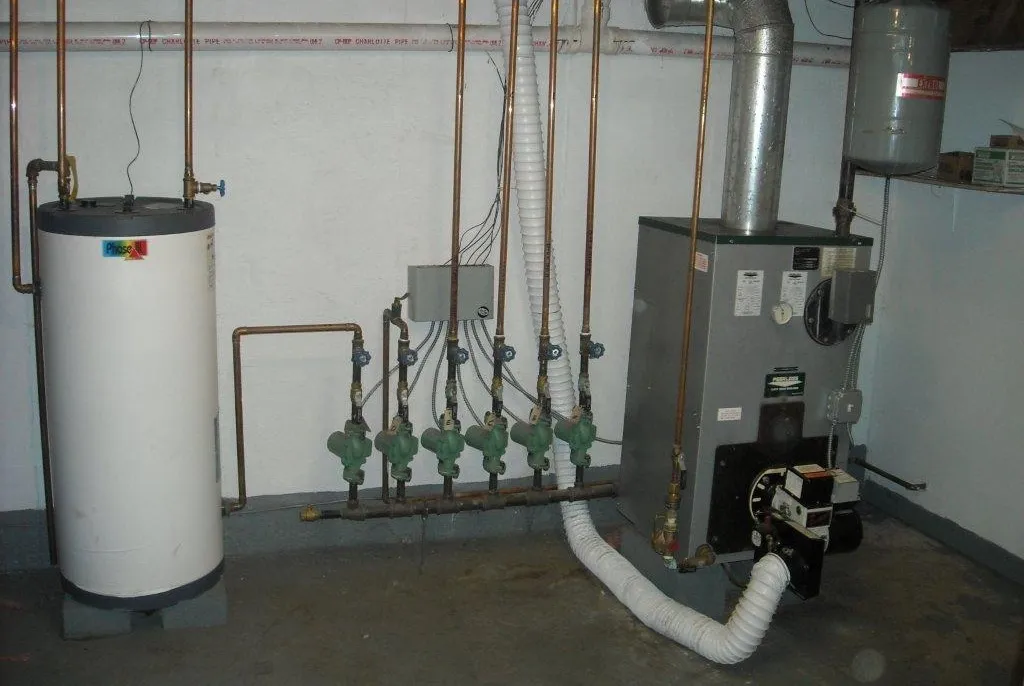Domestic Coil Hot Water: How It Works and When to Upgrade

Strong 8k brings an ultra-HD IPTV experience to your living room and your pocket.
If your home relies on a boiler for heating, chances are it also uses a domestic coil hot water system to provide on-demand hot water. These systems are efficient and space-saving, especially in homes without separate hot water tanks. However, understanding how domestic hot water coils work—and recognizing when they need service or replacement—can save you from sudden cold showers and rising energy bills.
This article explains the basics of domestic coil hot water systems, their benefits, common problems, and when it might be time to consider an upgrade.
What Is a Domestic Coil Hot Water System?
A domestic coil, also known as a tankless coil, is a copper or stainless steel heat exchanger installed inside your home’s boiler. When you open a hot water tap, cold water flows through this coil and is instantly heated by the boiler’s hot water jacket. The result? Hot water on demand—without the need for a separate storage tank.
These systems are most common in older homes or those using oil or gas-fired boilers for central heating.
How It Works
The process is simple:
Boiler heats water inside its internal chamber.
Cold tap water enters the domestic coil.
Heat is transferred from the boiler’s hot water to the coil.
Hot water exits the coil and flows to your faucet or shower.
The domestic coil only heats water when a tap is opened—eliminating the need to store hot water.
Benefits of Domestic Hot Water Coils
Domestic coil systems offer several advantages:
On-demand hot water: No waiting for a tank to heat up.
Compact design: Ideal for small spaces or homes without basements.
Lower upfront cost: Cheaper to install than indirect or tanked systems.
Shared heating source: Uses the same boiler that heats your home.
This type of system is especially useful in colder climates where the boiler is frequently running during winter months.
Common Issues with Domestic Coils
Using NLP-based review analysis and technician feedback, the most reported issues include:
Inconsistent Hot Water
If your water fluctuates between hot and cold, the coil may be fouled with mineral buildup or your boiler’s aquastat (temperature controller) may be faulty.
Low Water Pressure
A clogged or corroded coil can restrict water flow, reducing hot water pressure at taps.
Inefficiency During Warm Months
Because the boiler must run even when no heat is needed, summer hot water generation can be energy inefficient.
Scale and Rust Buildup
Over time, hard water can lead to limescale deposits in the coil, affecting performance and leading to potential failure.
Maintenance and Replacement
To keep your domestic coil functioning well:
Flush the system yearly to reduce scale buildup.
Install a water softener if you have hard water.
Have your boiler inspected regularly by an HVAC technician.
When to Replace the Coil:
If it's leaking or corroded
If cleaning doesn’t restore hot water flow
If the coil is over 10–15 years old
If your energy bills rise significantly despite no change in usage
Alternatives to Domestic Coil Hot Water
While domestic coils offer convenience, many homeowners are switching to more efficient alternatives:
Indirect Water Heaters
Use the boiler to heat water in a separate tank—more efficient in the long term.
Tankless Water Heaters
Wall-mounted units that provide endless hot water without using your boiler.
Heat Pump Water Heaters
Use electricity and ambient air to heat water—high efficiency, low carbon footprint.
Switching from a domestic coil to a standalone water heater often pays off in reduced energy bills and more consistent hot water delivery.
Cost of Coil Replacement
The typical cost to replace a domestic hot water coil ranges from:
$300–$600 for the part
$300–$800 for labor and service
Total estimate: $600–$1,400 depending on boiler model and accessibility
Always get quotes from licensed professionals, and ensure they check the boiler’s integrity before installing a new coil.
Domestic coil hot water systems offer simple, space-saving hot water production using your home’s boiler. While they’re reliable for many years, they do have limitations—especially in energy use and summer performance. Understanding how your coil works, keeping up with maintenance, and recognizing when it’s time for a replacement can help you avoid breakdowns and improve your home’s comfort.
If your hot water has become unreliable or inefficient, it may be time to explore replacement options or even consider upgrading to a more modern, standalone hot water system. Either way, knowing your options puts you in control of your comfort and your energy costs.
Note: IndiBlogHub features both user-submitted and editorial content. We do not verify third-party contributions. Read our Disclaimer and Privacy Policyfor details.


